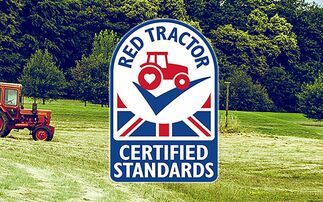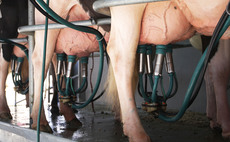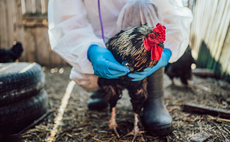
On 21 July 2025, the UK government released draft legislation that will significantly reshape the landscape of IHT relief for business and agricultural property owners. These long-awaited details confirm that from 6 April 2026, the widely publicised changes to Business Property Relief (BPR) and Agricultural Property Relief (APR) will come into effect –marking a significant shift in succession planning.
Despite strong lobbying efforts from industry groups and professional bodies, the government has not wavered from their positioning. For the rural community, this comes as a huge disappointment – but it also signals a clear message: the time to prepare is now.
What's Changing?
The Draft Legislation Confirms:
- Every individual has a non-transferable ÂŁ1 million cap on the combined amount of BPR and APR they can claim.
- Any value of business or agricultural property above this cap will only receive 50% IHT relief. This means the IHT liability arising on death on assets above the cap will be 20%.
- Farms and Estates can pay the IHT liability in equal annual instalments over 10 years. In many, but not all, cases these instalments will be interest-free. The first payment will be due 6 months after the end of the month in which death arises.
What Does This Mean for You?
- If you own agricultural or business assets, these changes will increase your estate's IHT liability from 6 April 2026. With the government's position now clearly set, forward planning is essential to protect your legacy and ensure a smooth transition of family assets.
How Can You Prepare?
The Howden Rural Team recommends seeking professional advice early to manage potential IHT liabilities on farms and estates. Our colleagues at SPF Private Clients ("SPF") have kindly outlined the following options that could be available:
- Life Insurance - Life insurance remains one of the most effective and reliable tools to cover a liability. IHT insurance is a type of life insurance policy that can be set up to provide liquidity to fund IHT liabilities that may arise on death. Such policies can be set up to fund IHT liabilities that may arise on an individual's estate, on a gift, a transfer into trust, or a combination of structures.
- Lifetime gifts -These are transfers of assets made during a person's lifetime that may reduce the value of their estate for IHT. This can include gifts to individuals or trusts. If the donor survives seven years the assets are no longer within their estate.
- TrustsĚý– Placing assets into trust shield them from potential tax liabilities, as well as being a useful asset protection and succession planning tool. They are also utilised when a life insurance policy is set up, it may be necessary for it to be settled in a trust, to ensure that the sum paid out following the passing of the life or lives insured can be accessed quickly, and to ensure that no tax arises on the sum.
This is a straightforward process to undertake, and all insurance companies will provide their own trust deeds which can be used without charge. Alternatively, individuals may opt for their lawyer to draft a trust deed.
Our colleagues at SPF are able to advise clients on what options may be suitable for their circumstances. Please contact the team at Howden Rural for more information.
SPF have also provided two hypothetical case studies below to highlight some life insurance options that may be available:
Example 1: Protecting IHT on estates
David and Sally are both age 60. They expect to gift a significant proposition of their family business assets later in life to their two children. Their total estate including all agricultural property is valued at ÂŁ5 million. This includes their main residence, which itself is valued at ÂŁ1 million. Whilst David and Sally wish to remain in their main residence for life, until such time that they are in a position to gift other assets to their children, they take out a term life insurance policy, lasting for 25 years, with the sum payable should they both pass away within the policy term.
They opt for a sum assured of ÂŁ1 million, which will be sufficient to protect the 20% IHT exposure on agricultural property valued at ÂŁ5 million above any tax-free allowances. As such, this sum also helps to future-proof against asset value growth.
Having been offered standard non-smoker underwriting terms, the premium payable for the sum of ÂŁ1 million will be ÂŁ4,117 per annum, equivalent to 0.08% per annum of the current estate value.
|
Policy Term |
Cover Amount |
Annual Premium |
|
25 Years |
ÂŁ1,000,000 |
ÂŁ4,117 |
Ěý
Example 2: Long Term Peace of Mind
James and Sarah, both aged 40, are married, and are joint partners on a mixed arable and sheep farm with a small farm café on site in rural Wiltshire. The farm and the comprised businesses are valued at £7,000,000.
As of 6 April 2026, ÂŁ1,000,000 each of their shares will qualify for 100% Agricultural Property and Business Relief, which leaves the remaining ÂŁ5,000,000 with 50% relief. Based on the current rate of IHT at 40%, and ignoring nil rate band allowances, this means an IHT exposure of 20% i.e. an exposure of ÂŁ1,000,000, which will arise following second death.
James and Sarah are aware that the government will allow the IHT bill arising on second death to be paid in equal annual instalments, interest-free. Based on their current IHT exposure, this will mean paying ÂŁ100,000 per annum.
However, they decide to explore setting up a Whole of Life insurance policy, with the policy set to pay out ÂŁ1,000,000 on second death to protect this IHT exposure.
Assuming both James and Sarah are accepted on standard non-smoker underwriting terms, the premiums available are:
|
Policy Term |
Cover Amount |
Annual Premium |
|
Whole of Life |
ÂŁ1,000,000 |
ÂŁ6,376 |
The cover amount and annual premium for James and Sarah's policy are guaranteed for life.
If the second death occurs when James or Sarah is aged 95, the total premiums payable will be ÂŁ350,698 to fund ÂŁ1,000,000 of IHT.
Example 3: Protecting IHT on gifts
John, age 75, makes a gift of agricultural property valued at ÂŁ5,000,000 on 6 April 2026 into trust for his son, Henry. Importantly, once he has made this gift, John will not retain any benefit in the agricultural property that has been gifted. With both reliefs and the nil rate band applied, John's taxable value on the gift is ÂŁ3,675,000 meaning that he has a IHT liability at 20% of ÂŁ735,000
The gift will be exposed to a potential IHT liability of ÂŁ735,000 (20% of ÂŁ3,675,000) for the first three years following the gift, with taper relief applying thereafter. The potential IHT liability will reduce to zero seven years after the gift was made.
John has taken out a 7-year life insurance policy with a sum assured of £735,000, designed to reduce in line with IHT taper relief. The total premiums payable over the term amount to £19,686, paid in reducing annual instalments, reflecting an effective 0.34% IHT rate on the gift — a significant reduction compared to the full 20% liability. The annual premiums payable under standard non-smoker underwriting terms are outlined in the table below:
|
Policy Year |
Total Cover Amount |
Annual Premiums |
|
Year 1 |
ÂŁ735,000 |
ÂŁ3,833 |
|
Year 2 |
ÂŁ735,000 |
ÂŁ3,833 |
|
Year 3 |
ÂŁ735,000 |
ÂŁ3,833 |
|
Year 4 |
ÂŁ588,000 |
ÂŁ2,988 |
|
Year 5 |
ÂŁ441,000 |
ÂŁ2,065 |
|
Year 6 |
ÂŁ294,000 |
ÂŁ2,065 |
|
Year 7 |
ÂŁ147,000 |
ÂŁ1,070 |
|
Total premiums payable over 7 years |
ÂŁ19,686 |
|
|
Total premiums as a % of ÂŁ5 million gift |
0.39% |
|
If you would like any advice in this area, please call Roddy Bannister from the SPF team on 020 3829 8292 or emailĚý[email protected]
Ěý
Advice must always be taken before implementing a life insurance solution. The premiums available for life insurance are subject to underwriting and will be based on individual circumstances. Formal Tax advice should also be undertaken before taking any actions. . Clients should not take or refrain from any action based on the contents of this article.
View our privacy notice .
Howden UK Brokers Limited is authorised and regulated by the Financial Conduct Authority No. 307663. Registered Office: One Creechurch Place, London, EC3A 5AF. Registered in England and Wales under company registration number 02831010. Calls may be monitored and recorded for quality assurance purposes.
SPF Private Clients Limited is authorised and regulated by the Financial Conduct Authority (FCA). The FCA does not regulate taxation advice. .ĚýRegistered Office: 33 Gracechurch Street, London, EC3V 0BT. Registered in England No. 3680970.
Ěý

















![Young new entrant couple build farming business - "We want to prove that you do not need to be born into [farming] to belong in it"](https://image.chitra.live/api/v1/wps/247e3d7/b7b68c0c-e082-46d8-8c01-35e703fceaf6/3/Adam-Broomhead-and-Holly-Zeidler-230x142.jpg)







